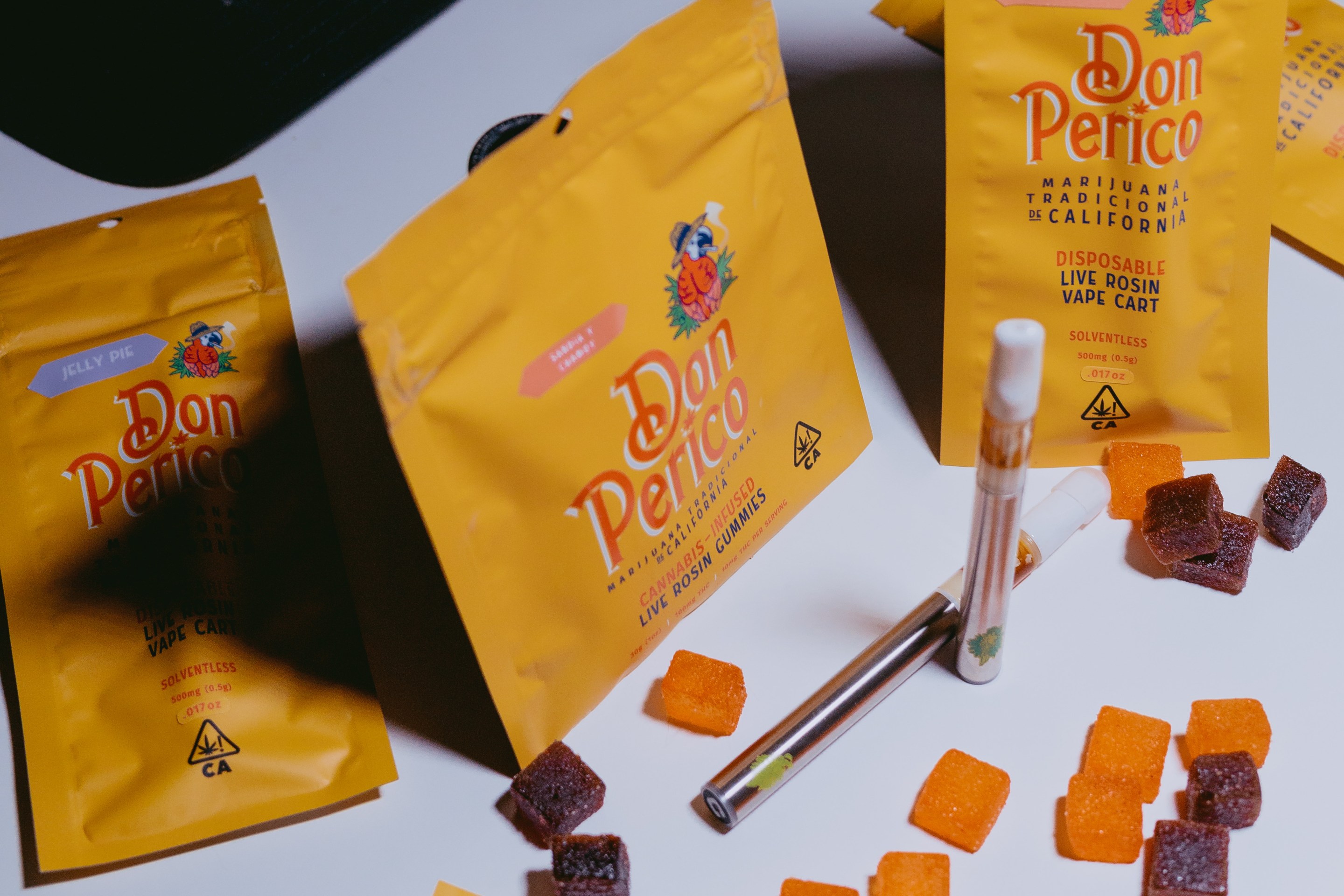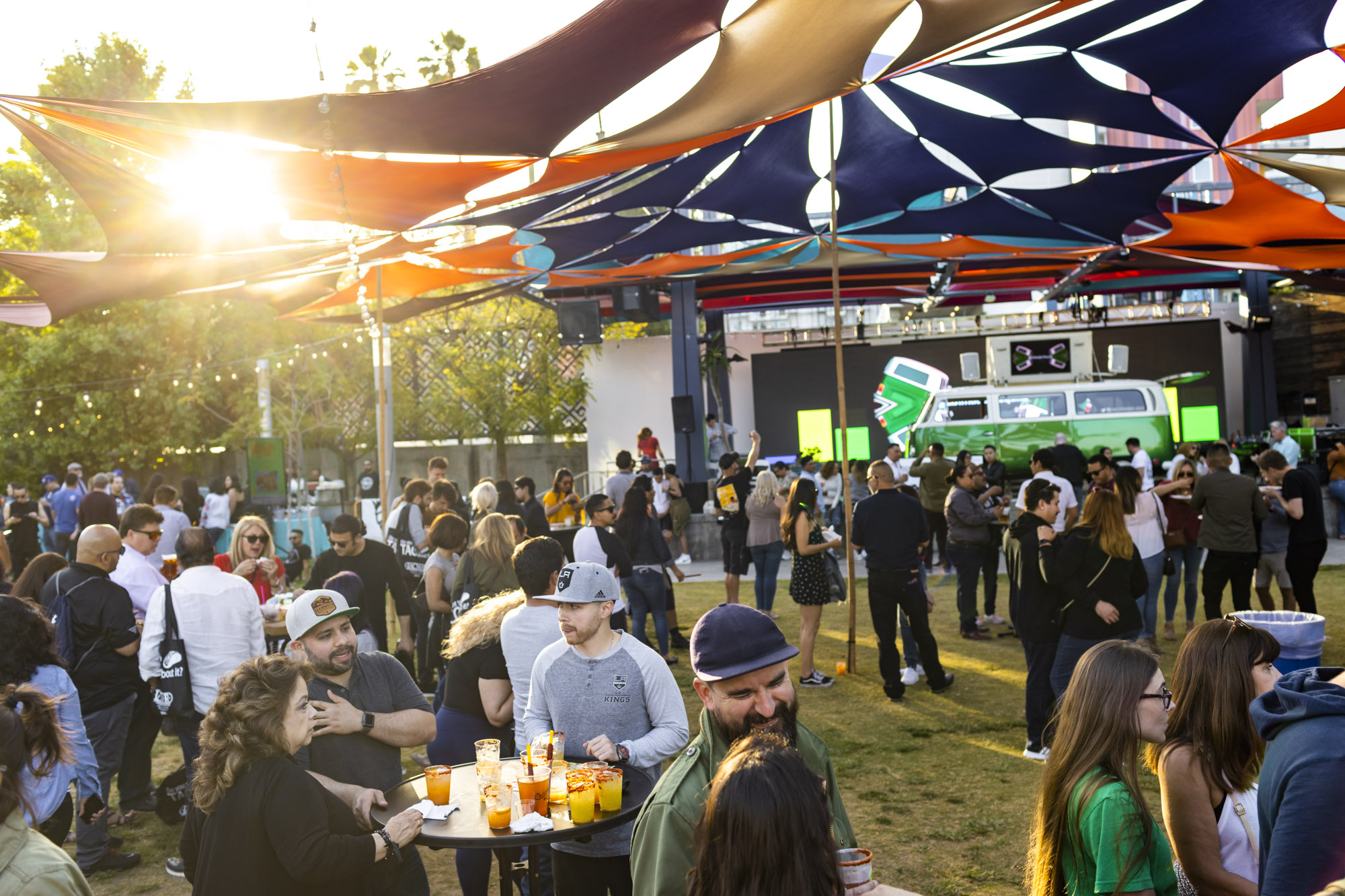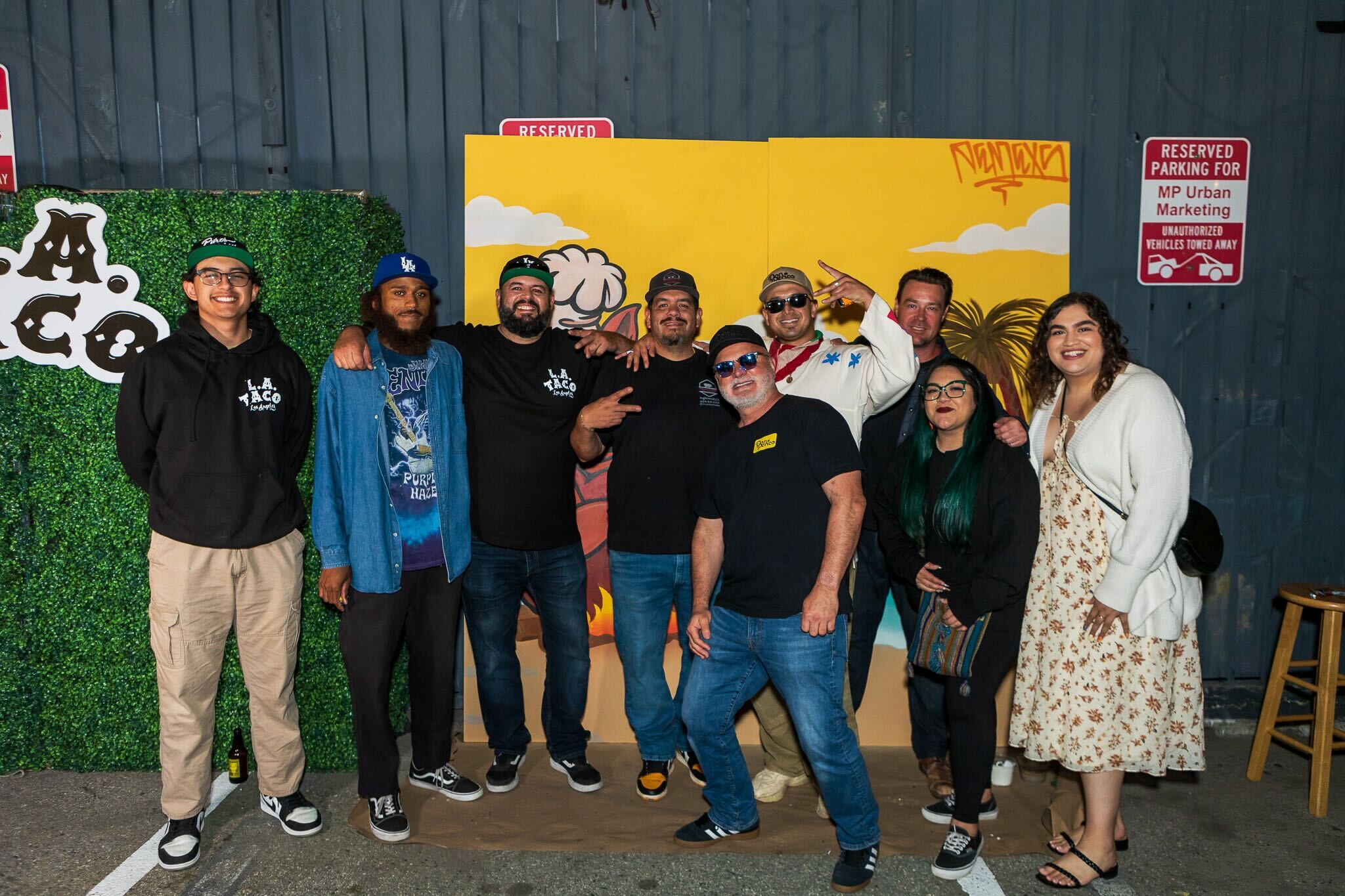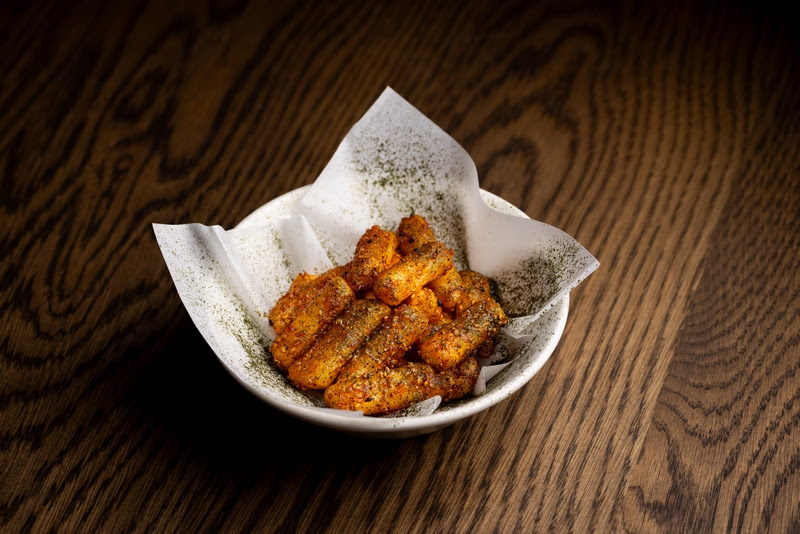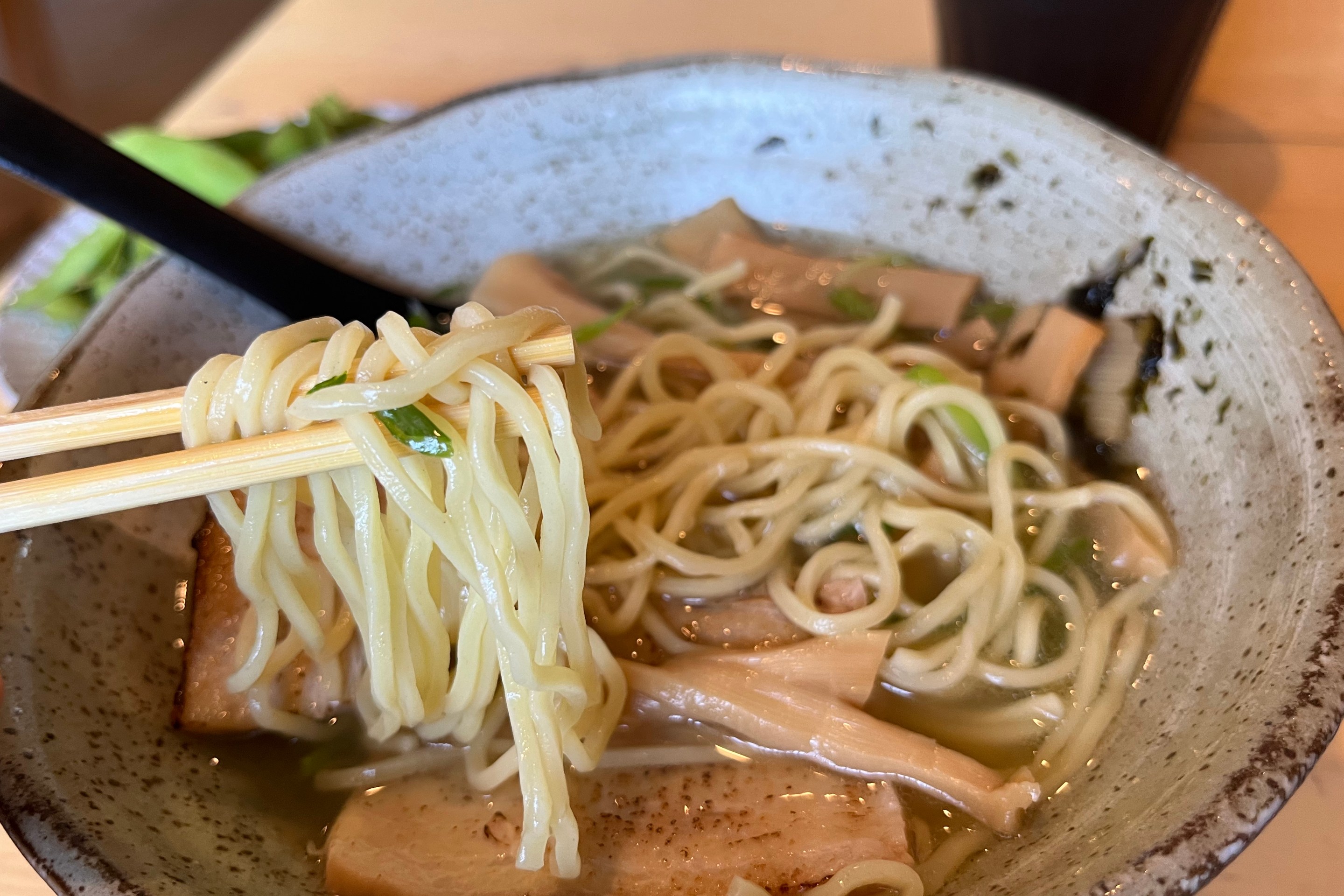Seven Diverse Comic Book Creators Share Their Advice For Budding Writers at L.A. Comic Con
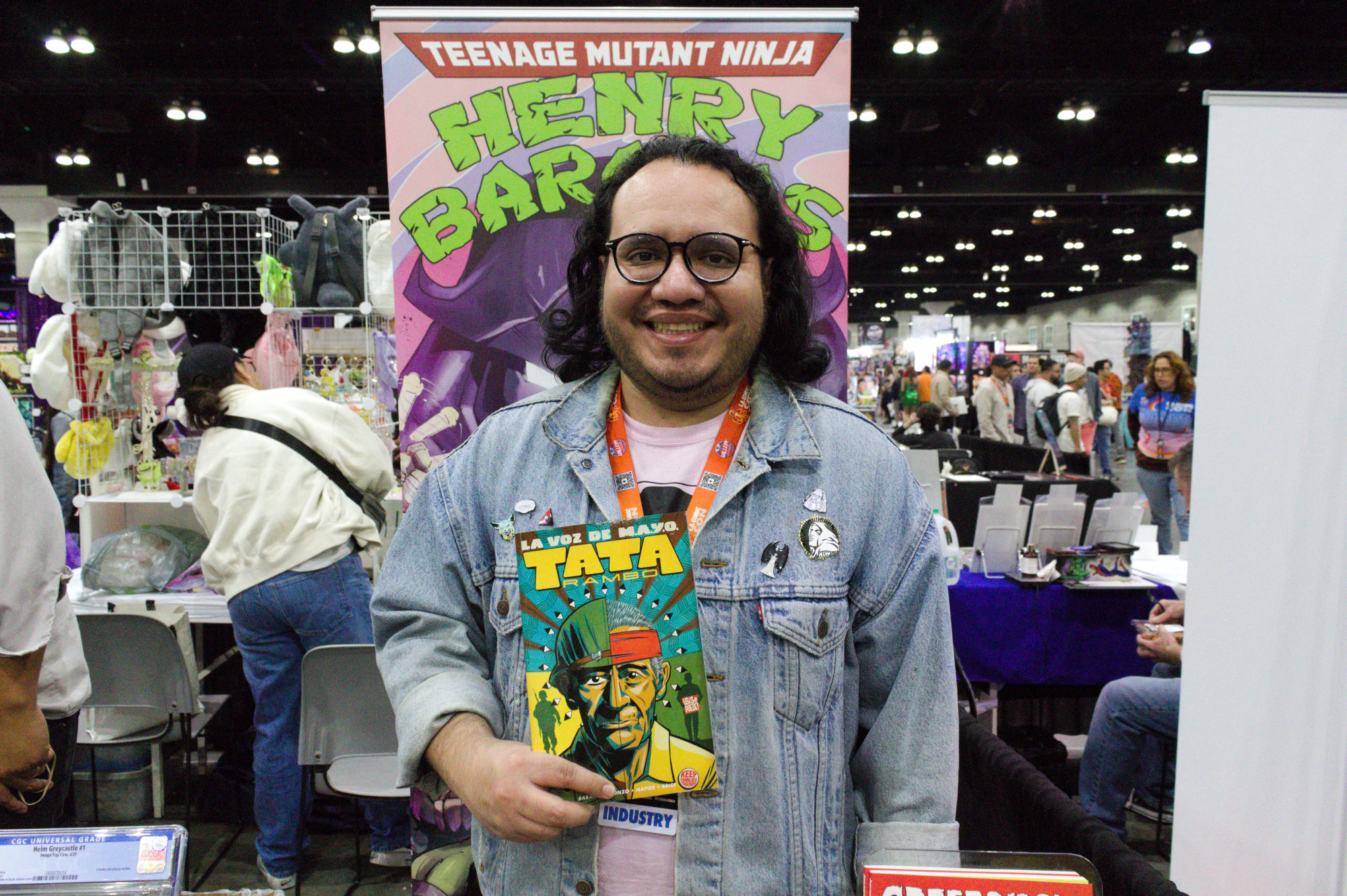
Henry Barajas; Teenage Mutant Ninja Turtles: Splintered Fate, La Voz de M.A.Y.O. Tata Rambo
For three days, Spider-Man and his multiple variations were everywhere inside the Los Angeles Convention Center. The Spidey Multiverse fandom had swung into the 2023 LA Comic Con, where hundreds of Spider-Men, Spider-Women, and Spider-Kids gathered with thousands of their non-Spidey-attired, pop culture-loving peers to celebrate the worlds created by their favorite comic books, movies, anime, cartoons, and video games.
L.A. Comic Con touted this year’s lineup of celebrities, panelists, and guests as its most diverse… and it showed, not only in its official lineup, but also in the crowd that gathered during the three-day event.
It truly was an L.A. event, as people from every corner of the city, county, country, and the world pulled up to celebrate their fictional and non-fictional heroes.
Any good comics convention is about more than just the big heroes in capes and costumes. It’s also a haven where independent creators and small publishers can promote themselves. L.A. Comic Con also delivered in that regard as attendees were treated to new worlds, new heroes, and new villains courtesy of the many independent artists, writers, and publishers at the event.
We met a few of them who were willing to share their thoughts on working in the comics industry independently and the benefits of attending conventions like LACC.
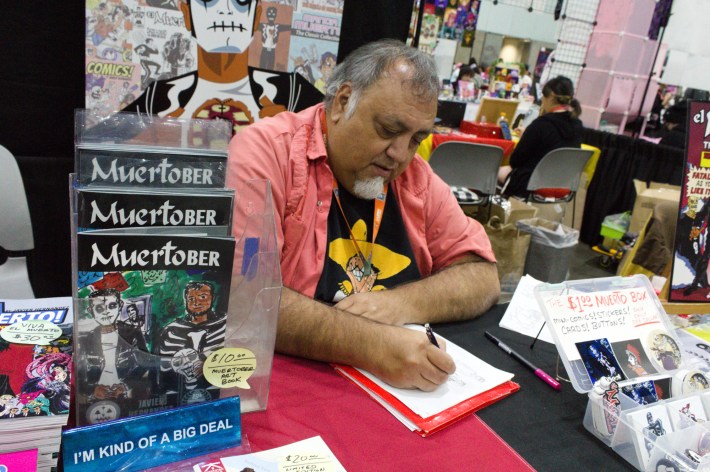
Javier Hernandez; El Muerto, Latino Comics Expo
What have been some of the highlights of coming here as a creator?
“Meeting people that I’ve met before. Just right now, I met this young woman. I was her teacher ten years ago at A Place Called Home out in South Central. On Friday, I met another guy, another young man. He says, ‘Hey, do you remember me?’ And I say 'no' because he was all bearded. He says, ‘Yeah, I was this tall when you taught me back in 2008.’
It’s cool being around so long. I’ve been doing this for 25 years, and I’ve been teaching almost as long. To see all these young folks I taught all grown up. It’s connecting with people again, meeting new people, and introducing them to the work. That’s always fun.”
As an independent creator, is it important to set up at comic conventions?
“Yes, because people will ask me, ‘Are these available at comic shops?’ And I go, ‘No, not really.’ That’s why I do so many shows, or I tell them to buy it online. It is important as an indie creator to go out to as many shows and people keep telling me, ‘every week you’re doing something.’ It seems like it! But it’s not just comic shows. We’re in L.A.! There are art festivals. There are street fairs. In my case, there are Latino events I go to and set up at. There are so many venues in L.A. We’re so fortunate to have so many places to visit. Or you can go to a bookstore or a comics shop and do a signing. It depends on how much gas you have in the tank every week.”
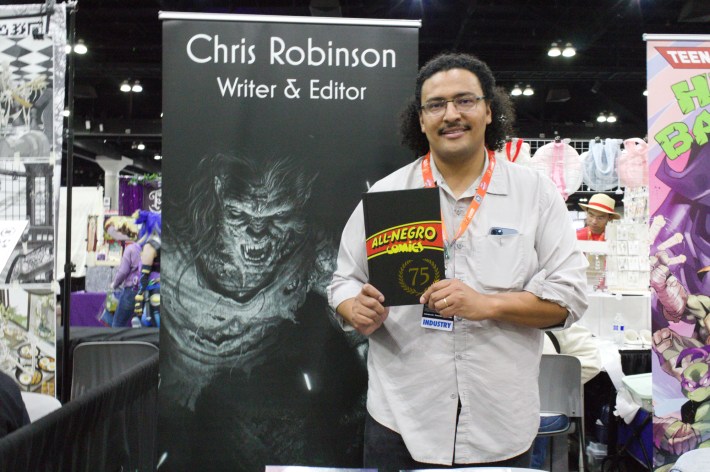
Chris Robinson; Werewolf Frankenstein, All-Negro Comics
“I was reading comics as a fan from a very young age, but it didn’t click to me as I should try to do this as a job until I was in [Emerson] college. I did an internship at Marvel Comics in editorial and seeing how much the influence that the editors have, which a lot of fans don’t like to hear, but basically, editors make everything happen. I was blown away by it, and I was like, ‘I need to be part of that,’ rather than the writing part, which was always my dream and eventually got back around to, but that’s where it starts for me.”
When did you start working on your own comics?
“Far too late! I wish I had gotten to it earlier, but just in the past year, I started writing my own comics. I started with ‘Werewolf Frankenstein,’ which is my ode to Universal monsters and matching them up in interesting ways. So, you take Frankenstein, and he gets into a fight with the Wolfman. Why can’t he now also have werewolf-ism, piece by piece, because he’s made up of all these different body parts? It's slowly going from body part to body part, and eventually, it'll get to his brain, and he'll become a full werewolf, which he doesn't want. So he's running around going to different doctors and forcing them to operate on him and figure out ways to beat the werewolf-ism.”
What about this project called All-Negro Comics?
“I call it my history book as a little joke, but it’s more fun than that. It’s a real comic. It’s from 1947. It was published in Philadelphia. It’s the first comic by Black creators at a Black publisher with Black characters. It was, unfortunately, taken off the stands very quickly, and a lot of copies were destroyed by newsstands once they saw the material. It falls into the public domain pretty quickly because no one's using the characters or doing anything more with them. It's this little like nugget of trivia, basically, that people a lot of people don't know about.”
“I discovered it on the web. I was fascinated by the whole real-life story, but also the book is really good, sort of ahead of its time. I always wanted to restore it, make it in a really prestige format, like a hardcover format, and that's what we did. We reprinted it, we had it recolored by a professional colorist, and we did some essays that talked about the history of it. I had a college professor do the research and all that stuff, so that's in there.
I did some essays from contemporary comic book creators as well. Then, we did some new stories with the old characters using modern storytelling techniques. So it's like a nice little package.”

Antoine Bandele; TJ Young & The Orishas, Tales From Esowon
“This is a publishing booth called Vandelay books. I publish mostly just myself, but I also publish other authors, most of it revolving around African mythology.”
When did you start working on this project?
“I think it was after 2017. It was after the season where in Game of Thrones-- Game of Thrones spoilers, so it's been a while--when Jon Snow died. That's when I actually had caught up with everything. And I was like, ‘what the heck?!’ And I was like, ‘are there any fantasy, like, Game of Thrones in Africa?’ I found a lot of good African authors, but not doing exactly the thing that I was looking for, so I end up writing the book myself and then continuing that trend for the next five, six years.”
Were you already working on other novels or written works before then?
“Yes, before that, I was doing a lot of fan-fictions like Star Wars and Harry Potter fan-fiction. But then I started doing my own original ideas based on African mythology.”
Is this your first time at L.A. Comic Con?
“I was supposed to come in 2020, but we all know what happened then. So it's my first time actually being able to come out and do this, and it’s probably better because, at that time, I had fewer books, and I was able to write through the pandemic to the point where, during the pandemic, one of my books, ‘TJ Young & The Orishas,’ got optioned for a motion picture adaptation.”
What was the impetus for you to self-publish rather than try to get a book deal with a publisher?
“I'm very impatient. When you do traditional publishing, nothing against it at all, and I think it's better for people who don't like marketing or don't like doing it themselves…there are certain creative types that don't want to do anything with marketing. They want to write the book and then just give it to somebody else to do everything. I'm very hands-on with everything. I love talking directly to my cover designers, who love talking to my editors, my narrators. I like being able to do all of that stuff because I went to university for multimedia. And we learned that that's what I do. I do multimedia, I do different things. I'm able to do audio book engineering, I can do a little bit of my graphic design, I can do writing, all that kind of stuff. I'm actually earning back my degree!”
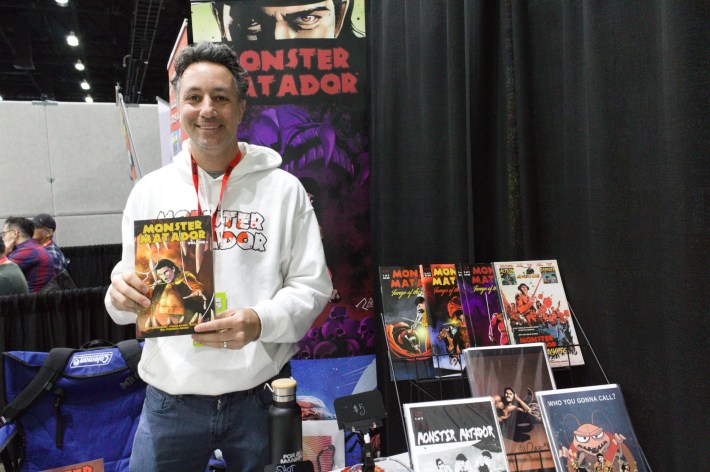
Steven Prince; Monster Matador
How long have you been writing and publishing your own comics?
“I've been writing and publishing my comics since about 2014. Monster Matador, we launched on Kickstarter in 2020.”
What was the impetus for creating your own comics?
“I used to work in the toy industry, and I got laid off. I had some free time, and I started making comics. Throughout 2014, I actually wrote and drew Monster Matador for fun. In 2020, we relaunched it with Fabio Alves as the artist and Alex Zeif as the colorist, and we've been doing it ever since.”
Were you into comics growing up?
“Yeah, I used to love Mad Magazine as a kid, and I used to make my own Mad magazines. As I got older, I got into comics, and I started making my own little comics that I would hand out to my friends and things like that.”
Is this your first time at L.A. Comic Con as a creator?
“This is actually my third L.A. Comic Con as a creator. It's great because you get to meet the fans. Because we do Kickstarters a lot, a lot of times, you’re really just seeing people online. Then I get to meet them here, but also, as an independent book, this is the best way to reach an audience. What happens is now that we've done it three years, we'll have people coming back every year, and they'll be looking for the new issues and the new stuff.”
“You really have to learn how to focus and find the places where people are looking for those kinds of books. What makes Kickstarter so great is that it's an entire ecosystem of people who are looking to support independent creators. So you build word of mouth from there.”
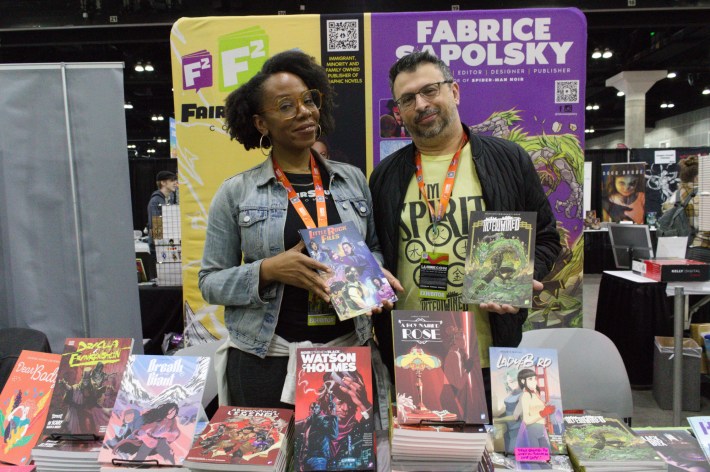
Kristal Adams Sapolsky & Fabrice Sapolsky; FairSquare Comics, Spider-Man Noir (FS)
What was the impetus to create the company?
FS: “Rage. I've been in the publishing and comic book business for 27 years. I did everything. I already was an entrepreneur and a publisher, but I was also a senior editor, I was a designer, I was a creator, and I've been everywhere. I probably have done everything you can do in our business. But in 2020, right before the pandemic, I was laid off from my previous position. It was not done in the best, possible and elegant way.
After a few months of trying to find work, it didn't go anywhere. I looked at Crystal, and I was like, ‘Okay, well, maybe I should do it myself.’ And she said, ‘Let's do it together’ and we started FairSquare Comics and became really serious about it. The company existed since 2019 but it had a very different goal. Originally, the goal of FairSquare Comics was to host my IPs that I created because I needed to put them all in one place. Then it morphed into the publishing initiative that it is now.”
“We started actually with a book called ‘Noir Is The New Black,’ which is an anthology of noir stories by Black creators. It kind of came out of the George Floyd murder. It was our answer to, like, okay, we're outraged. We want to do something. We're going to do something. We know what, and we know how to do it, and this is comics and graphic novels. ‘Noir Is The New Black’ was an outstanding success on Kickstarter. We raised close to $50,000 and then it started everything. We went to Diamond, the distributor, and they said, ‘Yeah, we like your project and would like to publish your books.’ And I had all my creator-owned, and between the creator-owned and ‘Noir Is The New Black,’ it blossomed into this thing where, originally, we had four titles in 2021. Now we have 17 in 2023 and 24 in 2024.”
“The idea is, really, put front and center immigrants and minorities, yes, and underrepresented categories of creators. But also have a focus on creators' rights, because it's something that I'm really passionate about because I've been exploited, let's say, by other companies in my previous jobs. I really wanted to create this kind of safe haven for creators where they would keep 100% of their creative rights, and we would act as their publishing partners. We created a color-coded system that you can see physically on every one of our books. If you see a FairSquare comics logo that is green, you will know that these IPs belong to us. If it's the purple logo, it's 100% creator-owned, and if you see a blue logo, these are the books that we're licensing from other publishers all across the planet. We really are putting our money where our mouth is, and creator rights are extremely important to our system.”
I’m old enough to remember when Image Comics first launched with a similar idea for a few artists with their own IPs.
The problem with Image Comics or any company that says or claims that they're doing creator-owned comics is that it comes with a price. Sometimes it's, ‘Oh, we're going to give you a creator-owned deal on the publishing side, but we're going to retain a fee or percentage of your media rights if it becomes a movie or animation.’ We're not doing that. Full creator-owned is full creator-owned. We are only the publishing partner, and publishers and creators can do whatever they want with their IPs. We're just happy to just be partnering with them and go along for the ride.”
“We also involve them at every level. I can tell you because I've worked at those companies before that, many times, creators are sidelined. They're not involved with the production process. They're not involved with the marketing process. They're not involved with the sales process. But we do involve them at every step of the way.”
The hustle never stops!
“Exactly. But look, this is how you build something. You know, people are often asking us why are you doing this this way? And I guess we want it more than everybody else. This is the immigrant mentality. You have to work harder to achieve results than others can achieve a little more easily. But it doesn't get to our head. We're hard workers here. And every penny we make is in the books. The quality's there, the printing quality. If you put our books next to other publishers' books, believe me, we have nothing to worry about.”
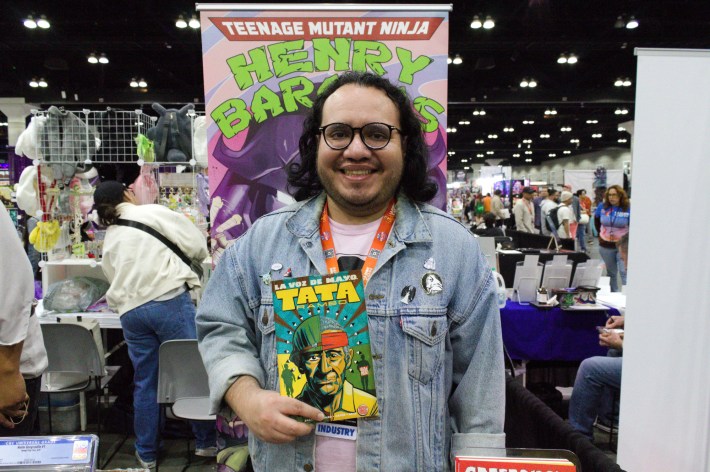
Henry Barajas; Teenage Mutant Ninja Turtles: Splintered Fate, La Voz de M.A.Y.O. Tata Rambo
“I am Henry Barajas, and I am 34 years old.”
And you’ve written an official Batman story for DC Comics.
“I did. I can walk into traffic and get hit by an L.A. city bus, and I've done everything I've ever wanted to do.”
How does something like that happen?!
“Well, I moved to L.A. from Arizona. I was thankfully ingratiated into the D.C. Comics community. A lot of folks lived here before the pandemic, so there was a lot of social functions, mainly karaoke, that I got to get to know people. There’s a big karaoke scene in the comic book industry. So thankfully, I made a really good friend, Ben Abernathy. I had dinner at his house with his beautiful family, and when the opportunity was right, I was able to tell a Batman story with Etrigan The Demon.”
An underutilized character, I think.
“I feel very lucky. The character has spoken to me in so many different ways that has shaped my moral compass, and has really been with me my whole life. I feel very lucky to have said something with the character.”
And besides that, you have some of your own independent stuff.
“I think it's important to have something to say with the medium. I think that it's nice to do the Batmans and the Turtles, but this is a medium that has been with me my entire life, that has been something that I can really rely on, that now pays my bills and feeds me. I try to give back to comics as much as I can, and, with that comes with the stuff that I have to say. What I have to say centers around racism and other social class warfare, the inadequate conditions that Native Americans have lived in and suffered through in this country. The indigenous point of view is very important to me. At the same time, propping up my friends and trying to work with people that are non-binary, that are people of color. There's so many different things that I try to do with this and in so many different ways that there's just not enough time in the day or in my life to do what I envision with comics.”
And coming to cons to share all that work.
“This is the place where people feel like they're where they belong, where they're not weird and you can be as weird as you want. There is somebody here that will share your enthusiasm. And I have an enthusiasm for comics that is not normal. It's not healthy. And this is the only place where I feel like I can be useful. I wish I was unhealthy about being a plumber, or something that made a lot of money, where I'm not constantly living paycheck to I don't know when I'm getting my next paycheck. We don't have a union. We don't have a lot of protections. There is no health care…it's not easy to be in this industry.”
“The thing about comic conventions is they're becoming more cash grabs for people, and it's at the expense of people who want to belong and pay for that space. There's not enough places that are like L.A. Comic Con that are affording this kind of space for me.
I think it's very important to recognize that the Los Angeles Comic Book Convention is giving me an opportunity to be here to have the space to promote my work and to engage with my community. There's no FilmCon where you can go meet Martin Scorsese. The barrier of entry for comics is so low and the opportunities you have to meet people that create multi-billion dollar entities that are the Avengers and Batman and Wonder Woman, you can meet those people that created those things and there's nothing like that for any medium. I think that's what makes comics and this kind of space so special.”
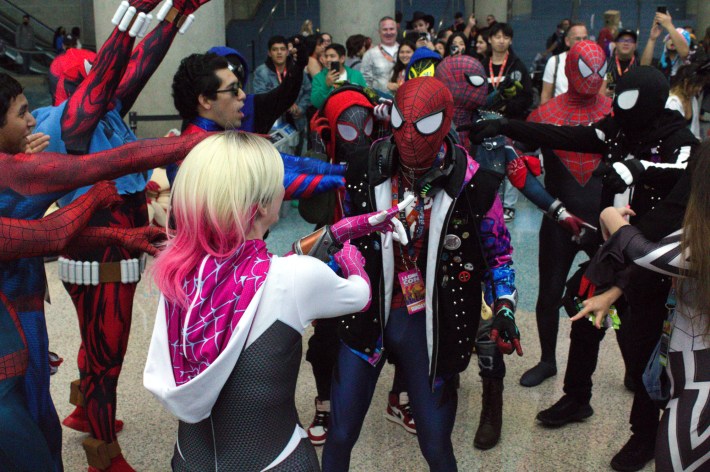

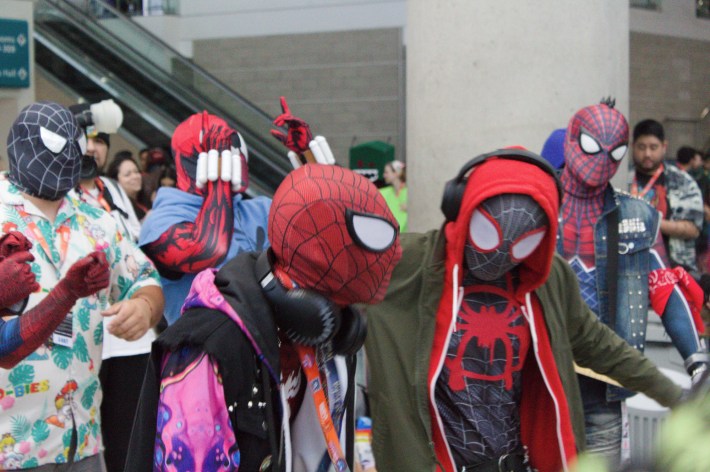
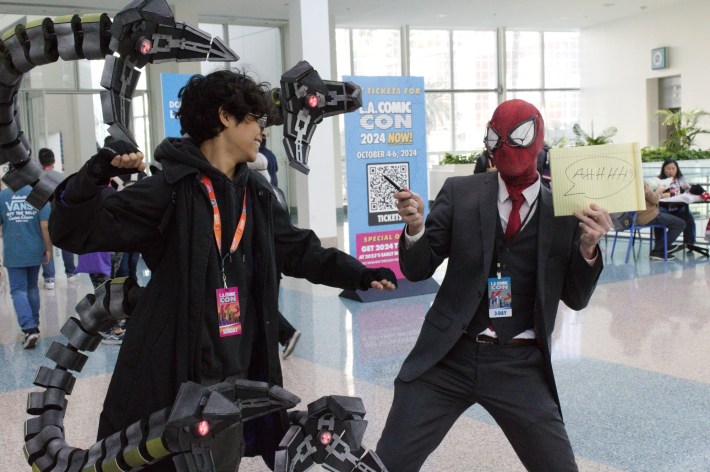
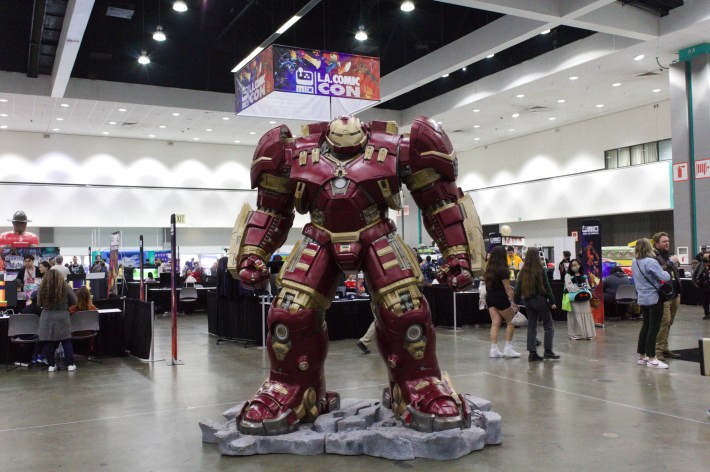

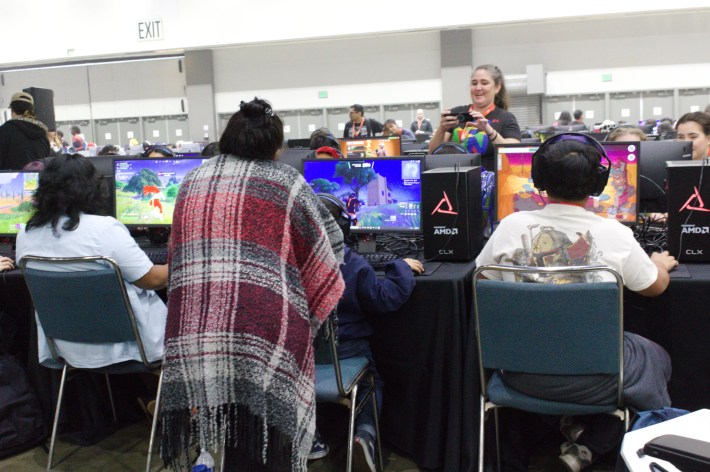
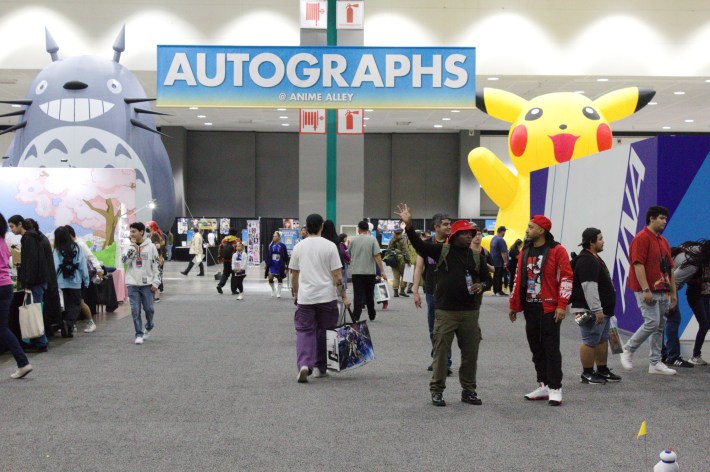
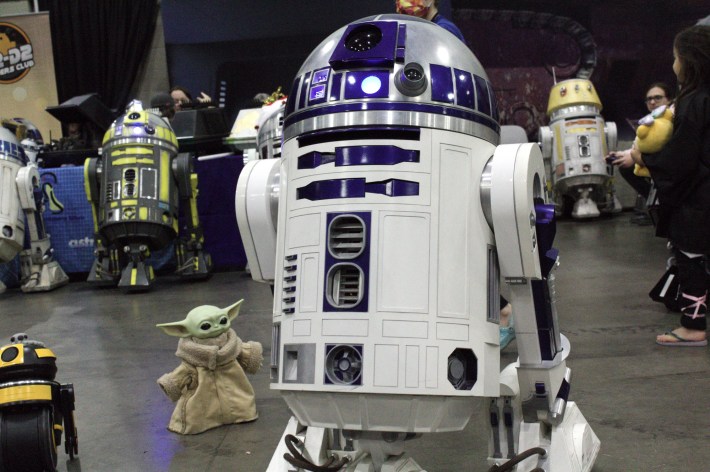

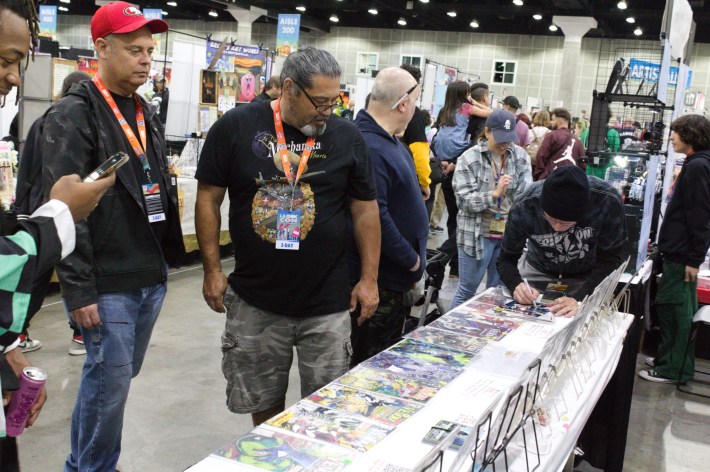
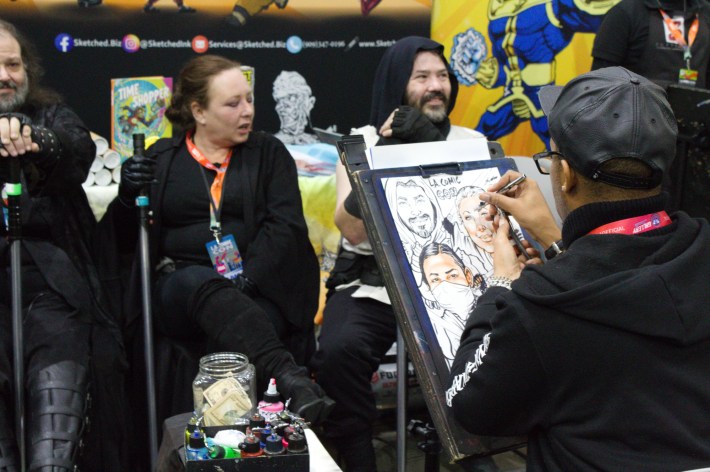
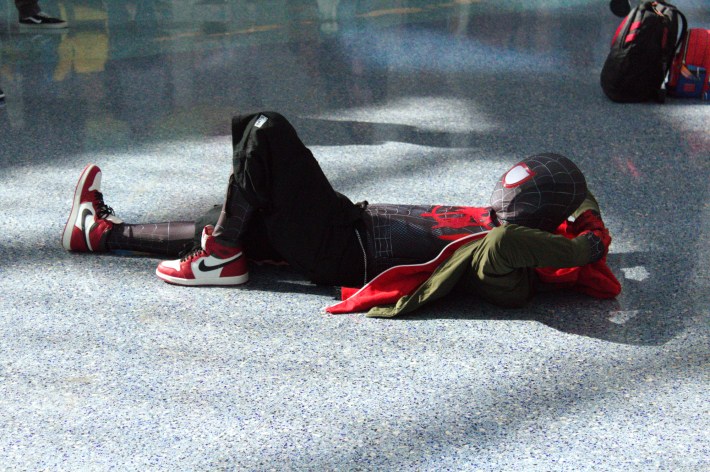
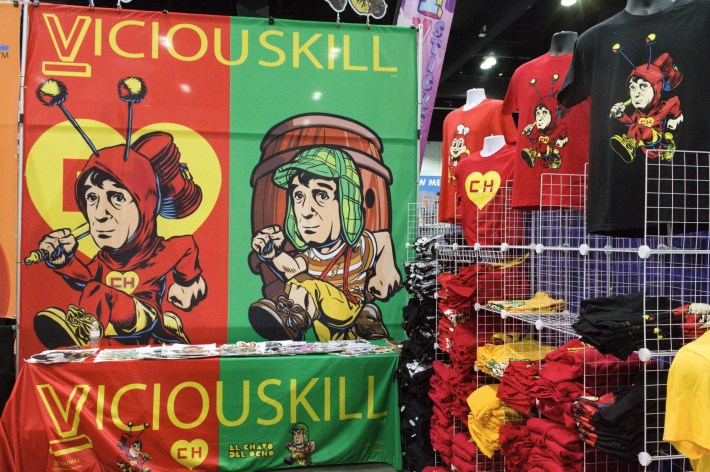


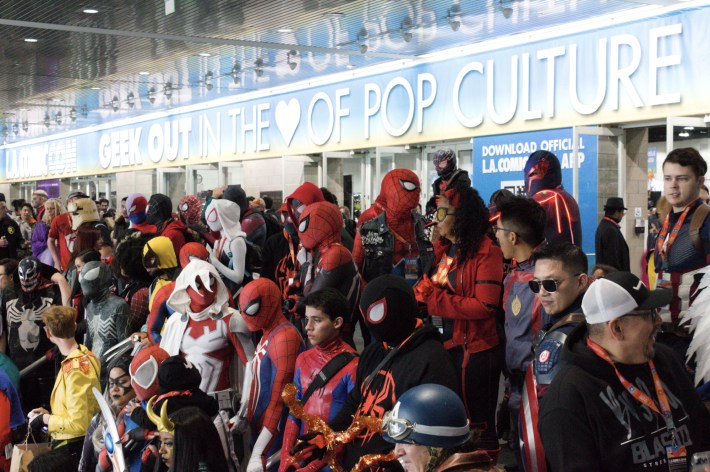
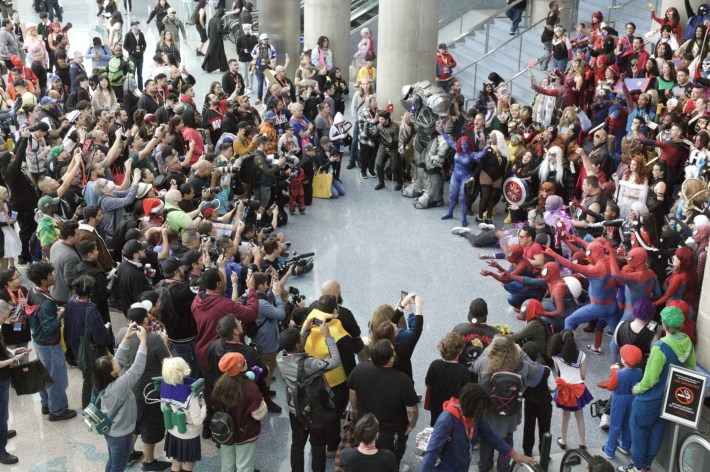
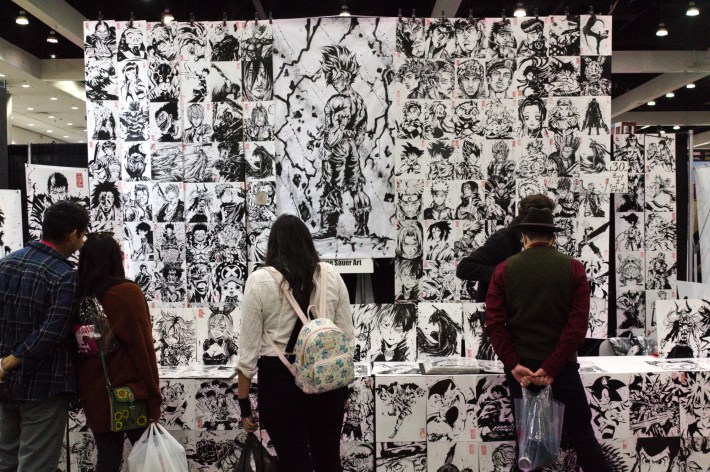
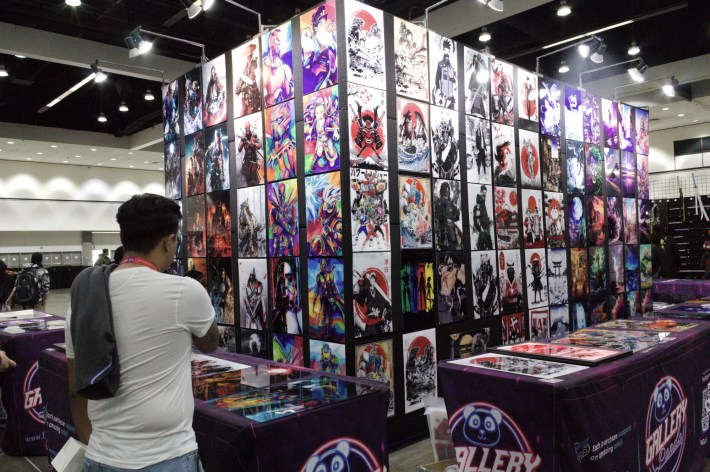
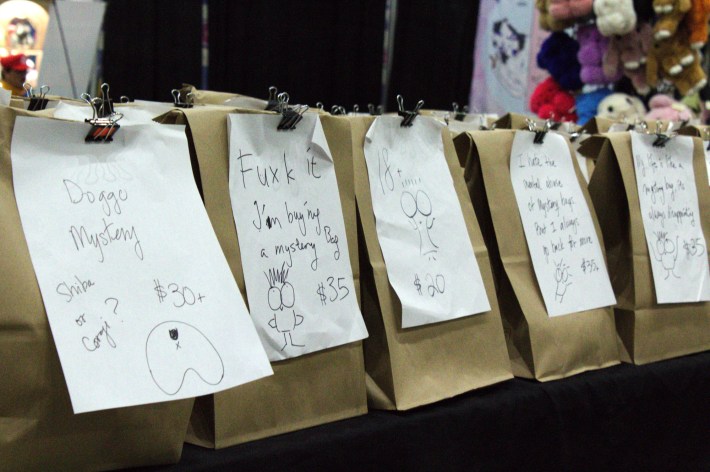
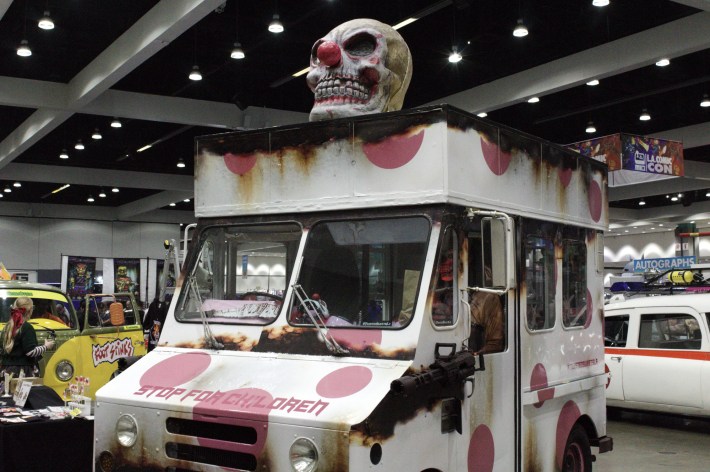
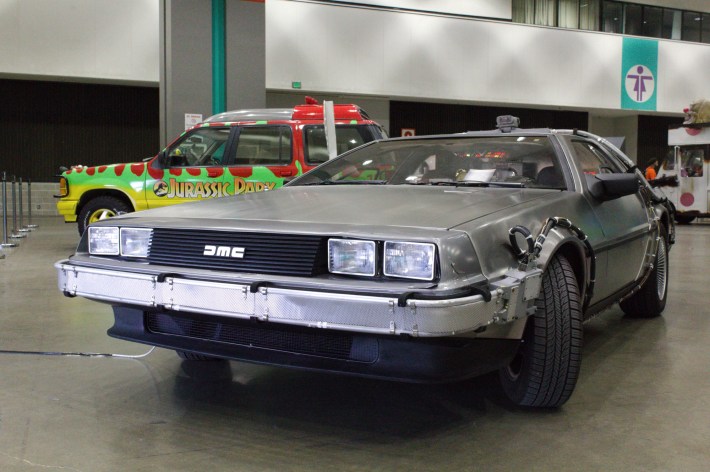
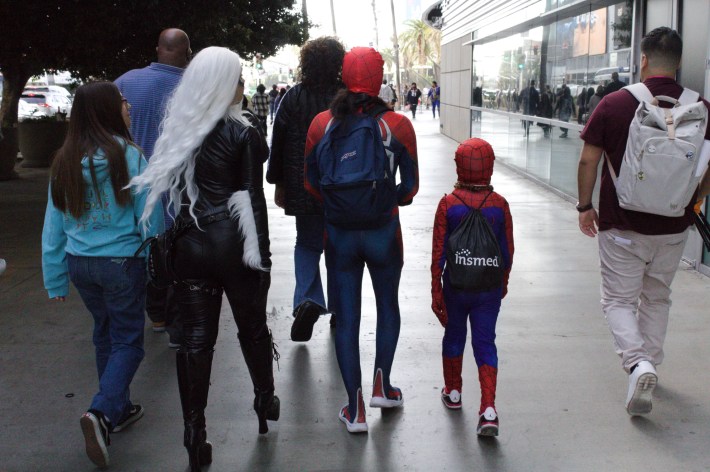
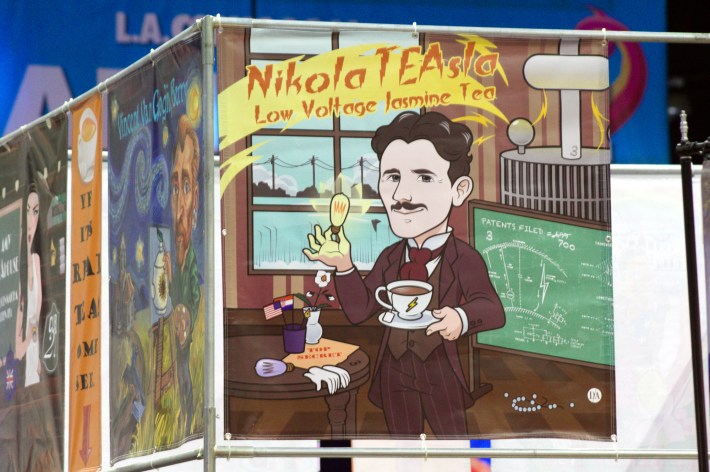
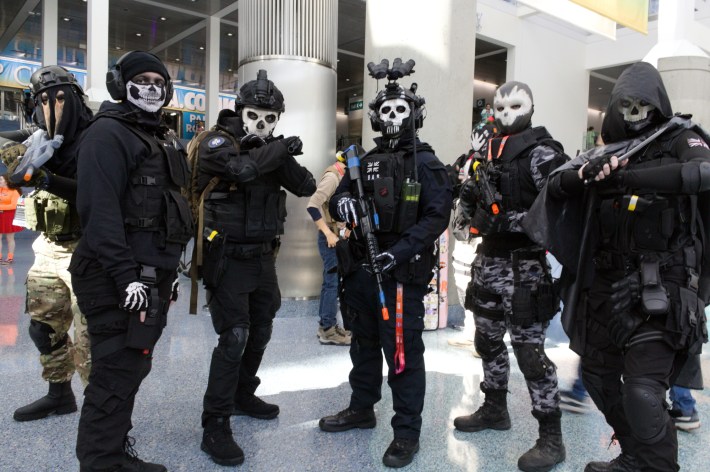
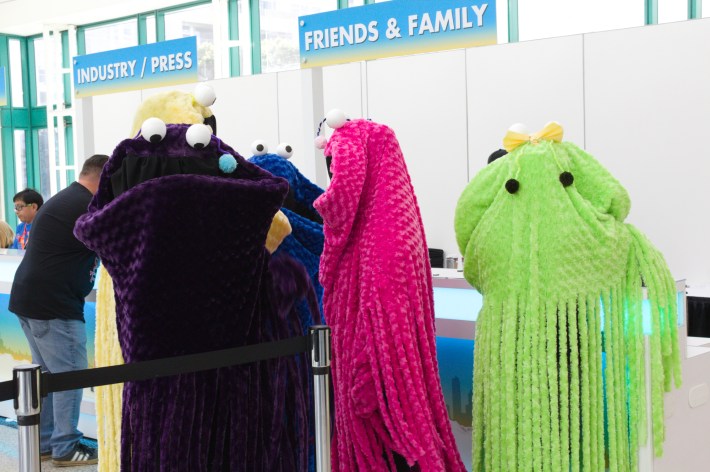

Read More:
Stay in touch
Sign up for our free newsletter
More from L.A. TACO
Where To Find Don Perico, The Mexican-Owned Brand Bringing Tropical Flavors To Dispensaries
The products, with their festive packaging, tropical flavors, and colorful parrot mascot, are relatable and better yet, they taste great, are fast-acting, and strong.
New Date for TACO MADNESS 2024 Event Confirmed: June 15th at La Plaza de Cultura y Artes
After getting rained out, our new date promises to be our biggest and most fun festival to date. Come out and eat all the tacos, drink all the micheladas, dance to the best DJs in L.A., and support our independent journalism! Of course, L.A. TACO members get in for free. Tickets on sale now.
An Update On Our Membership Drive: Some Bad News, and Good News
Some bad news, and some good news on our pledge to survive and stay sustainable.
Where To Eat This Weekend: Bulgogi Pupusas, Hemp Seed Guacamole, ‘Sticky Rice Sticks,’ and Korean Street Food In Venice
Plus an Roman chef veteran in a Hollywood apartment, chocolate Cuba Libres, Uzbeki plov with lazer rice, and cochinita melts in a Silver Lake yard. Here are the best things to eat around Los Angeles (and San Juan Capistrano!) this weekend.
